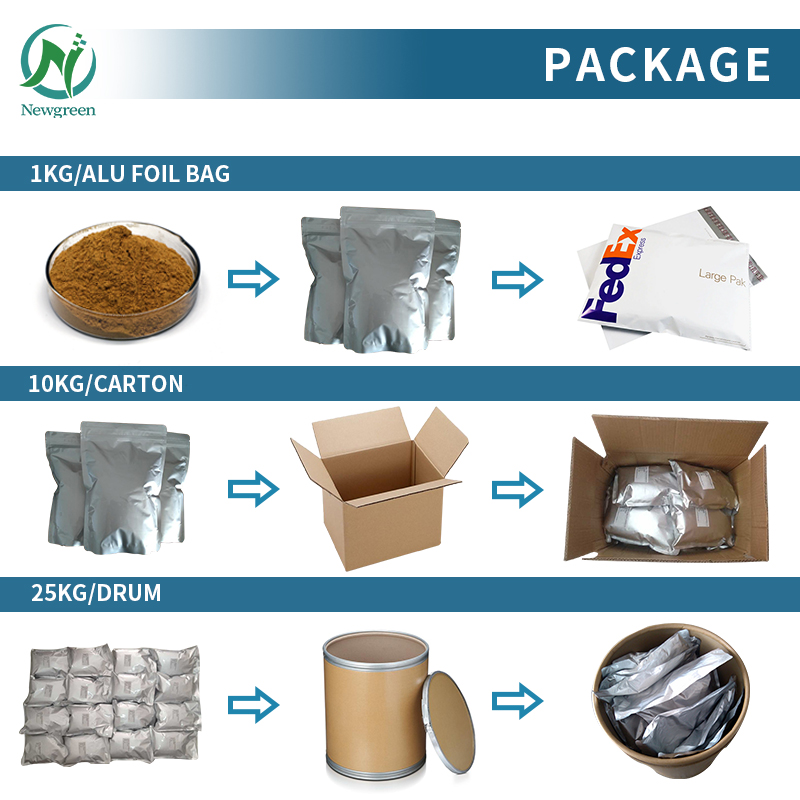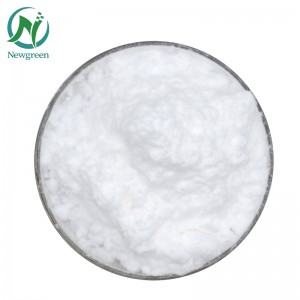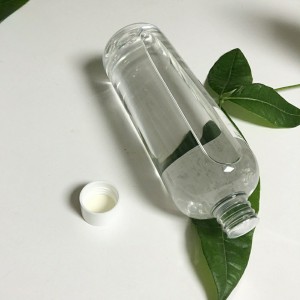Newgreen Supply Natural Antioxidant Thymol Supplement Price

Product Description
Thymol, a naturally occurring monoterpene phenolic compound, is found mainly in the essential oil of plants such as Thymus vulgaris. It has a strong aroma and a variety of biological activities such as antibacterial, antifungal, and antioxidant, so it is widely used in the fields of medicine, food, and cosmetics.
Chemical properties
Chemical formula: C10H14O
Molecular weight: 150.22 g/mol
Appearance: Colorless or white crystalline solid
Melting point: 48-51°C
Boiling point: 232°C
COA
|
ITEM |
SPECIFICATION | RESULT | TEST METHOD | ||
| Physical Description | |||||
|
Appearance |
White | Conforms | Visual | ||
|
Odor |
Characteristic | Conforms | Organoleptic | ||
|
Taste |
Characteristic | Conforms | Olfactory | ||
|
Bulk Density |
50-60g/100ml | 55g/100ml | CP2015 | ||
|
Particle size |
95% through 80 mesh; | Conforms | CP2015 | ||
| Chemical Tests | |||||
|
Thymol |
≥98% | 98.12% | HPLC | ||
|
Loss on drying |
≤1.0% | 0.35% | CP2015 (105 oC, 3 h) | ||
|
Ash |
≤1.0 % | 0.54% | CP2015 | ||
|
Total Heavy Metals |
≤10 ppm | Conforms | GB5009.74 | ||
| Microbiology Control | |||||
|
Aerobic bacterial count |
≤1,00 cfu/g | Conforms | GB4789.2 | ||
|
Total Yeast & Mold |
≤100 cfu/g | Conforms | GB4789.15 | ||
|
Escherichia coli |
Negative | Conforms | GB4789.3 | ||
|
Salmonella |
Negative | Conforms | GB4789.4 | ||
|
Staphlococcus Aureus |
Negative | Conforms | GB4789.10 | ||
|
Package &Storage |
|||||
|
Package |
25kg/drum | Shelf Life | Two years when properly stored | ||
|
Storage |
Store in a cool, dry place and keep away from direct strong light. |
||||
Function
Thymol is a natural monoterpene phenol, mainly found in the essential oils of plants such as thyme (Thymus vulgaris). It has a variety of features and applications, here are some of the main ones:
Antibacterial effect: Thymol has strong antibacterial properties and can effectively inhibit the growth of a variety of bacteria and fungi. This makes it widely used in medical and hygiene fields, such as in disinfectants and antimicrobials.
Antioxidant effect: Thymol has antioxidant properties, which can neutralize free radicals and reduce the damage to cells caused by oxidative stress. This makes it have certain applications in food preservation and cosmetics.
Anti-inflammatory effect: Research shows that thymol has anti-inflammatory properties and can reduce inflammatory responses. This makes it potentially useful in treating inflammatory diseases.
Repellent effect: Thymol has a repellent effect on a variety of insects, so it is often used in repellents and anti-insect products.
Analgesic effect: Thymol has a certain analgesic effect and can be used to relieve mild pain.
Oral Care: Due to its antibacterial and breath freshening properties, thymol is often used in oral care products such as toothpaste and mouthwash.
Food Additive: Thymol can be used as a food additive to play a preservative and seasoning role.
Agricultural Applications: In agriculture, thymol can be used as a natural fungicide and insecticide to help control pests and diseases.
Overall, thymol has a wide range of applications in multiple fields due to its versatility and natural origin.
Application
Field of cosmetics
Skin care products: The antioxidant and antibacterial properties of thymol make it widely used in skin care products to help protect the skin from oxidative damage and bacterial infections.
Perfume: Its unique aroma makes it a common ingredient in perfumes.
Field of agriculture
Natural insecticides: Thymol has a repellent effect on a variety of insects and can be used to prepare natural insecticides to reduce environmental pollution.
Plant protectants: Their antimicrobial properties make them useful in plant protection to help control plant diseases.
Other Applications
Cleaning products: The antibacterial properties of thymol make it useful in cleaning products, such as disinfectants and cleaners.
Animal health care: In the veterinary field, thymol can be used for antimicrobial and antifungal therapy in animals.
Package & Delivery



















